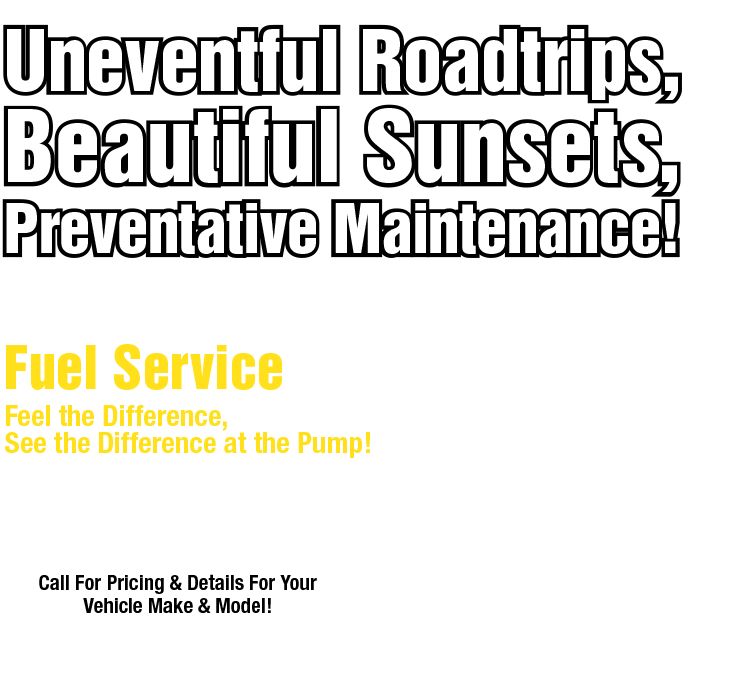Michigan: What Is the Risk of High Oil Change Intervals?
September 25, 2016
Michigan residents may have heard that vehicles don't need their oil changed as often as they used to. That's true. But it's not the whole story.
Owing to improved engine technology and higher oil quality, most newer vehicles can go longer between oil changes than their older counterparts.
So what is a good time interval for oil changes? How do Michigan residents know when to change it? And why do we change it in the first place?
Oil lubricates a vehicle's engine, which protects it from friction damage. Over time the oil can collect dirt and contaminants that inhibit its performance. But dirty oil isn't the only problem for Michigan residents. What you really want to avoid is called oil sludge.
Oil sludge is caused by moisture in the oil and by hot spots in your engine that burn off oil. This sludge is a gooey gel that can clog engine passageways, which can block lubricants from reaching vital engine parts. The result can be engine wear or even engine failure.
Sludge forms rapidly in an engine that is driven under what are termed “severe conditions.” A vehicle's owner's manual includes recommendations for oil change intervals under both normal and severe conditions. Severe conditions include towing a trailer, driving in polluted or dusty conditions, hauling heavy loads or using a car top carrier. Also, extremes in climate such as very hot or very cold temperatures constitute severe conditions for vehicles.
Some people may be tempted to overlook the severe conditions preventive maintenance schedule in their 's owner's manual because of the word “severe.” But consider this: the most common form of severe conditions is stop-and-go driving, rush hour commuting or only driving your vehicle on short trips around the area.
When a vehicle only makes trips under four miles/six kilometers, or under 10 miles/16 kilometers in freezing conditions, the engine doesn't get warm enough for condensation in the oil to evaporate. The result? You get oil sludge build-up. If your driving patterns are the same as any of the conditions that count as severe, you should be changing your oil more frequently under the severe conditions schedule.
The team at Auto Pro Troy in Troy can help you understand what type of oil to use in your vehicle and how it can affect your oil change schedule. Some vehicles are filled with synthetic or synthetic-blend oil at the factory. The owner's manual will recommend that this oil continue to be used in the vehicle, and oil change intervals will be based on this type of oil.
Also, if your vehicle uses conventional oil, but you have some of those severe driving habits we talked about, you can switch to a premium-grade oil to give your vehicle extra protection. The answer to why we change our oil is fairly simple: to protect our engines and make our vehicles last longer and run better. But the answer to how often to change our oil is more complex: it depends on our vehicle, our driving habits, where we live and what kind of oil we use.
When it comes to oil changes, a little information can go a long way to helping people save money and extend the life of their vehicles. Stay safe, and stay on the road.
Need Service?
More articles from Auto Pro Troy Auto Repair

In That Case? (Transfer Case Exchange)
March 9, 2025
Ever wonder how all-wheel-drive or 4-wheel-drive vehicles get the power from the engine to the front and rear wheels? The magic happens in what's called a transfer case. In some all-wheel-drive vehicles, it's sometime called a power take-off unit, or PTU. Inside the transfer case is a set of gea... More

Motor Oil?The Synthetic Advantage (Synthetic oil vs Conventional)
March 2, 2025
Youve probably already heard that regular oil changes are extremely important for the health of your vehicles engine. Thats sound advice. But what you might not know is when it comes to motor oil, the real thing may not be the best thing for your engine. There are different types of motor oil: ... More

Putting a Stop to Brake Problems (Brake Service)
February 23, 2025
It's safe to say that most drivers take their brakes for granted. You press on the brake pedal and the vehicle slows down or stops. It's easy to see why it is so important for your vehicle's brakes to be working correctly. Brakes are an important safety feature of any vehicle. When it comes to... More










